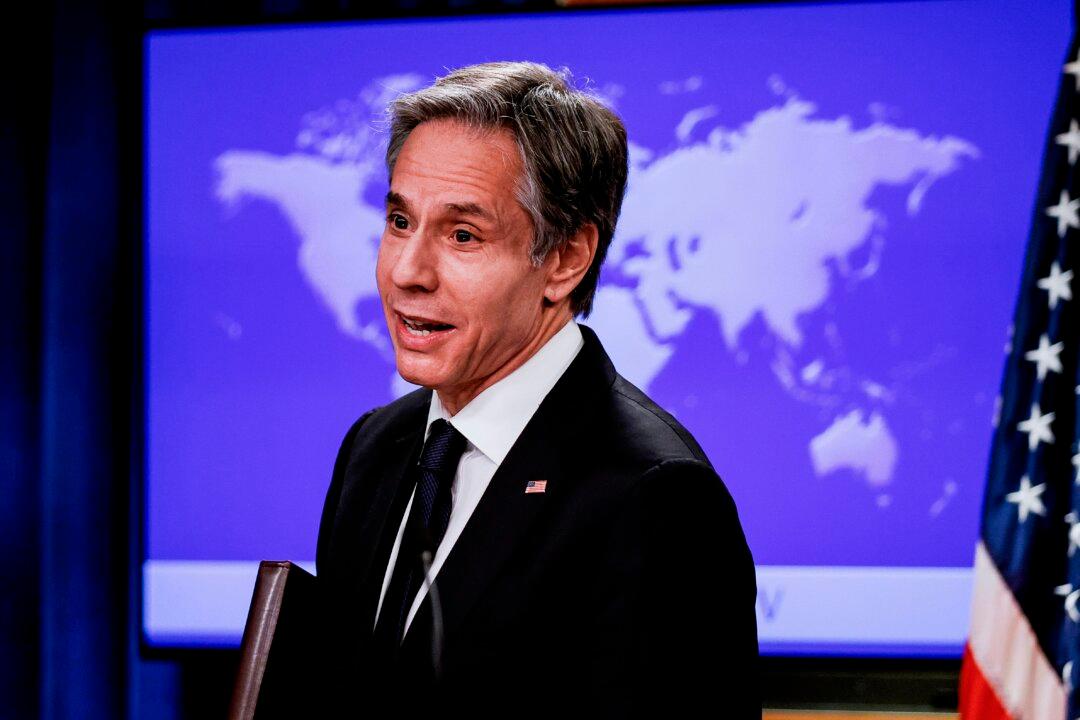Blinken also pressed China to condemn the military coup in Burma (also known as Myanmar), and he reaffirmed that Washington will work with allies to hold China accountable for threatening the stability of the Indo-Pacific, including across the Taiwan Strait, the department said in a statement.
A BBC report earlier on Wednesday said women in the camps were subject to grave abuses, with the British broadcaster reporting that, “Several former detainees and a guard have told the BBC they experienced or saw evidence of an organized system of mass rape, sexual abuse, and torture.”
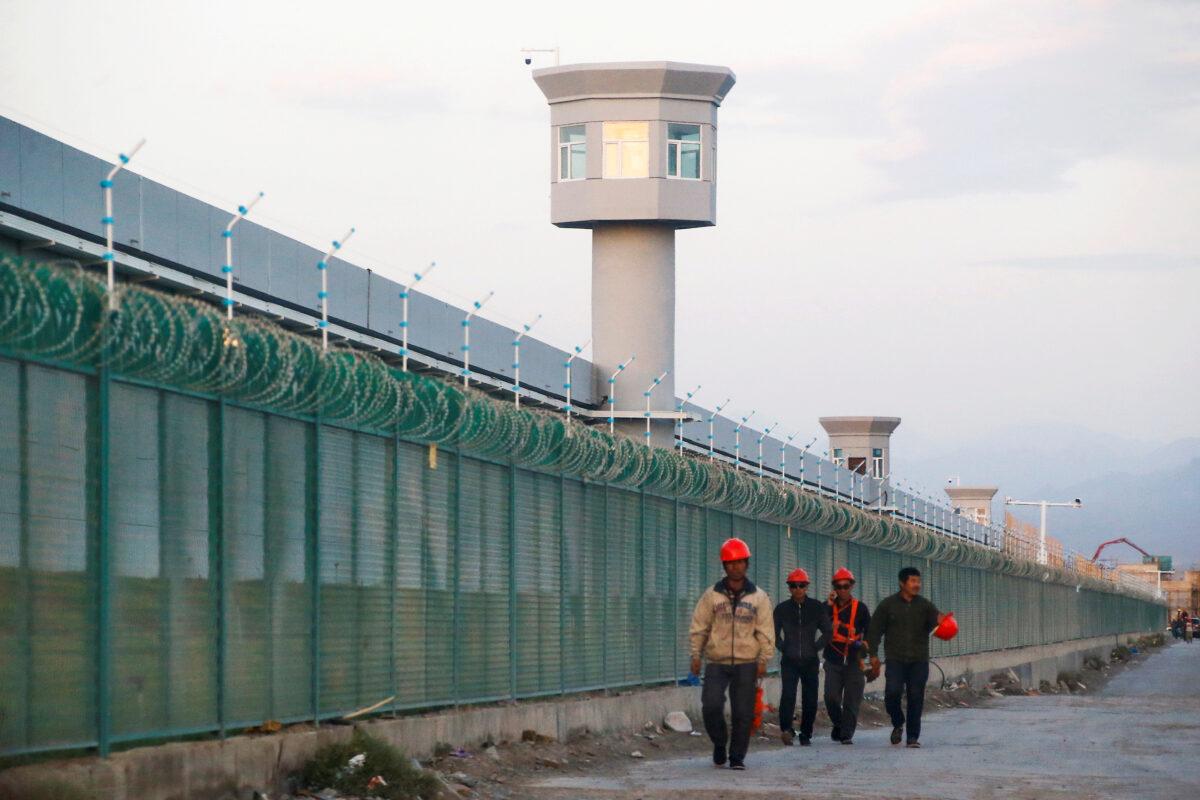
On the call with Blinken, Yang said that the United States should “correct” its recent mistakes and that both sides must respect each other’s political systems and development paths, according to a statement from the Chinese foreign ministry. Yang, speaking in an online forum on Tuesday, also called on the United States to “stop interfering” on issues of Chinese sovereignty, including Xinjiang, Hong Kong, and Tibet.
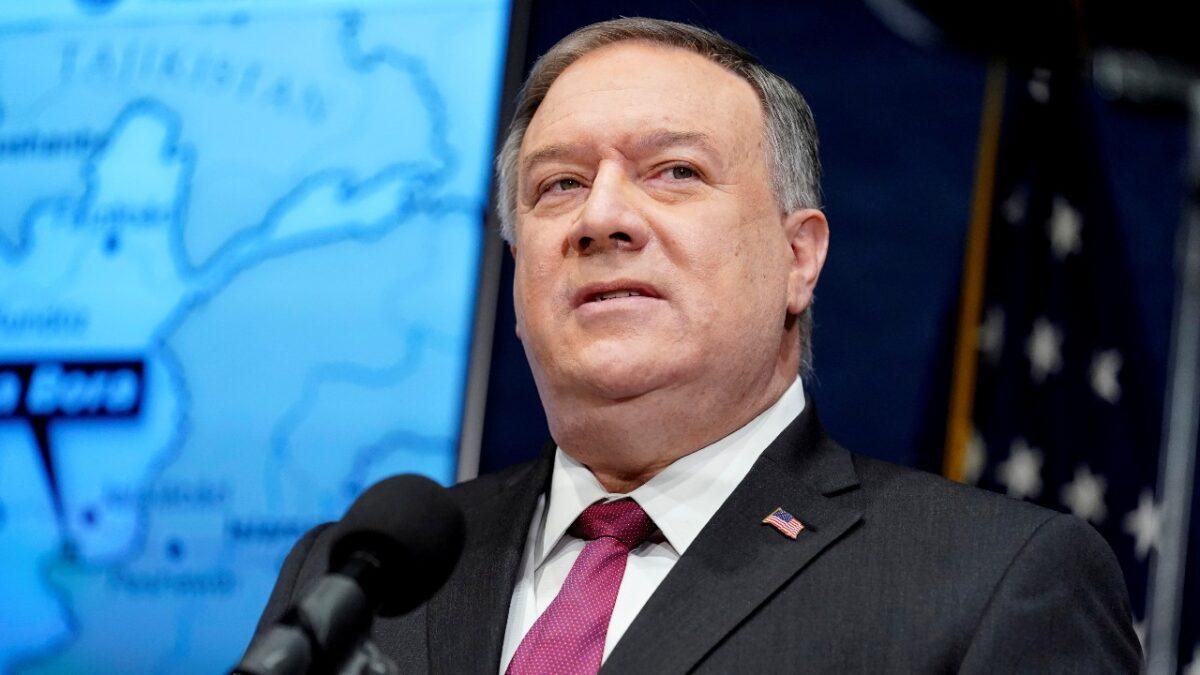
“Relevant U.S. officials have made seriously wrong remarks in breach of the principle of international law and norms governing international relations, to which China is firmly opposed,” he said. “We urge the U.S. side to correct its mistakes, take concrete actions to abide by the one-China principle and the three China-U.S. joint communiques, and act in a prudent manner.”
The one-China policy and the joint communiques are diplomatic arrangements under which the United States formally recognizes Taiwan not as a separate country, but as part of China, while still maintaining separate diplomatic relations with Taiwan, which includes security guarantees and support through arms sales, which in 2020 totaled around $5 billion.
President Joe Biden on Thursday described China as “our most serious competitor” and said Washington would continue to confront what he described as China’s “attack on human rights, intellectual property, and global governance.”
“But we’re ready to work with Beijing when it’s in America’s interest to do so,” he added, suggesting a policy of greater engagement.
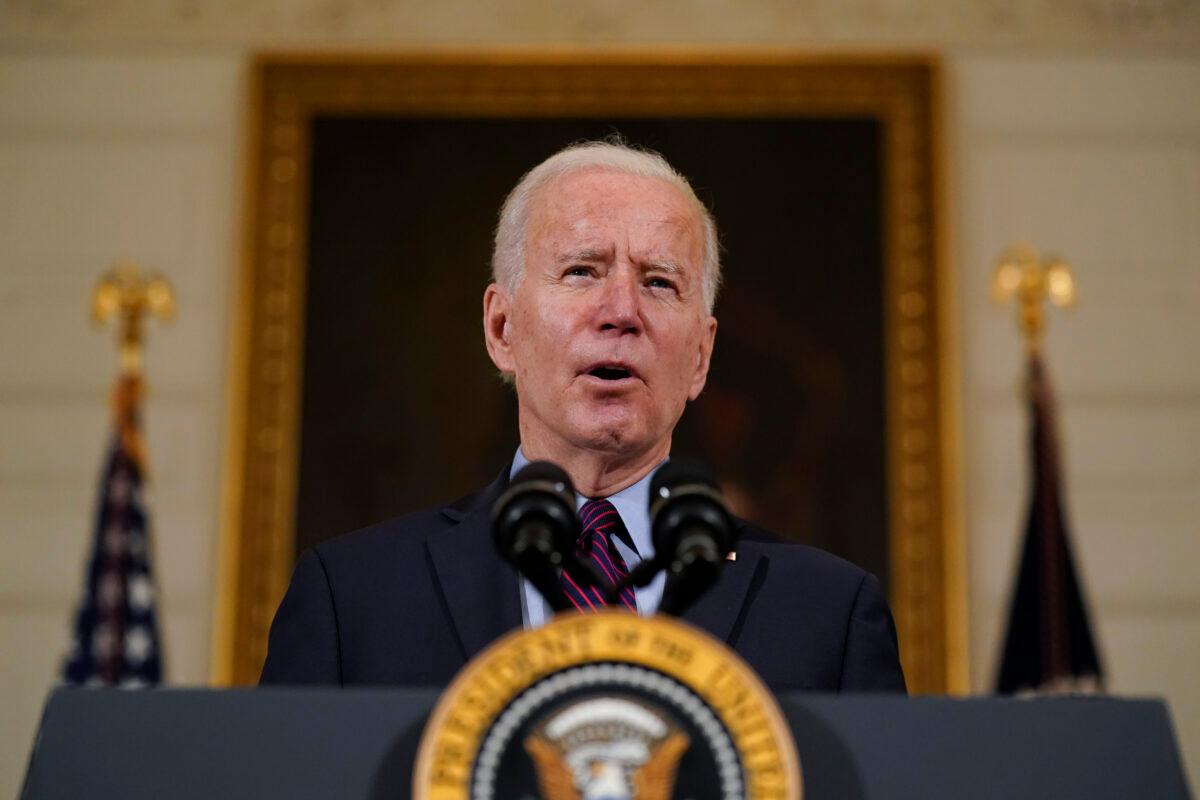
The Global Times, a tabloid run by Chinese Communist Party paper the People’s Daily, said in an editorial on Saturday that it expected the Biden administration to keep talking tough while improving cooperation in some areas.
“This is obviously different from the later period of Trump’s administration, which had only hyped up antagonism between China and the U.S.,” it said.
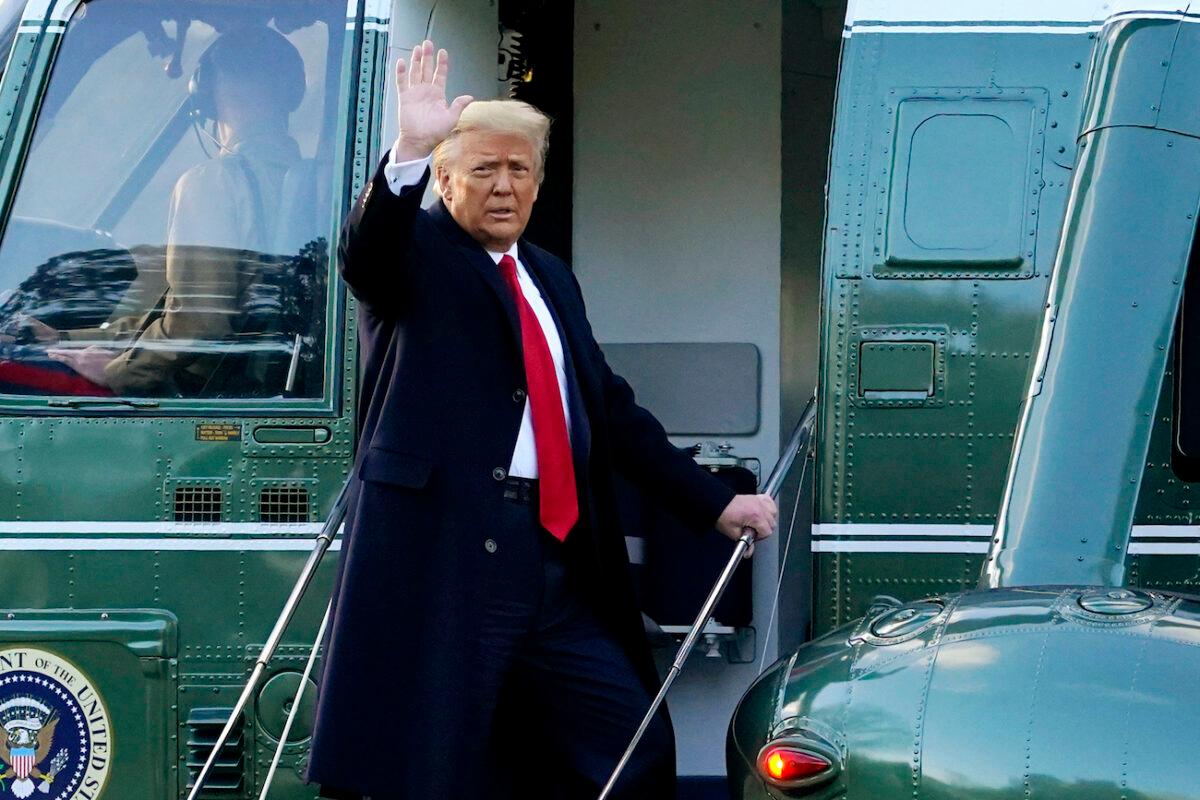
U.S.-based China affairs commentator Tang Jingyuan said in a phone interview that the Chinese regime was using both soft and hard tactics to pressure the Biden administration, in the hopes of restarting official talks with the United States.
His speech could be read as an indication that the Chinese regime would be willing to make concessions if the United States would promise not to cross the “red lines.”
Ultimately, Tang believes the Chinese regime wants to “revert back to a time when human rights and commerce were decoupled from each other” during negotiations, so that the regime could continue to do business with the United States, while ignoring human rights issues.
